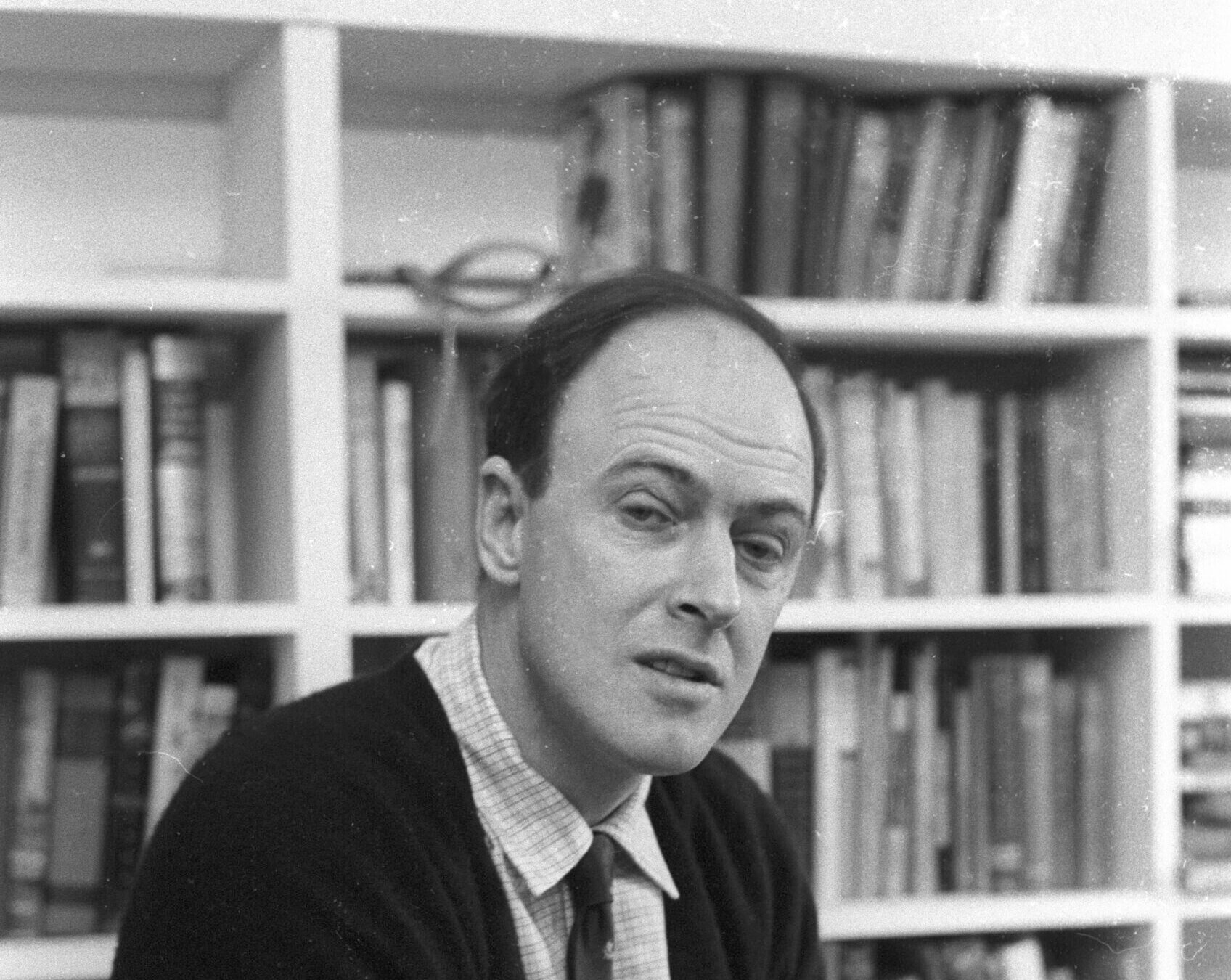Roald Dahl said terrible things — but rarely in his children’s books
The author’s work is undergoing a reported rewrite for inclusion. It’s his antisemitism that ought to be examined.

Roald Dahl in 1960. Photo by Ben Martin/Getty Images
Perhaps the greatest lesson in Roald Dahl’s books for children is that the world can be a cruel, nasty place — especially for children.
What is Matilda if not a kind of schoolyard nightmare? Or The BFG if not a jarringly violent rehash of Gargantua and Pantagruel? Charlie and the Chocolate Factory involves indentured labor (if not outright slavery) and death by chocolate. For all their terrors, Dahl’s creations are fun, whimsical and above all not condescending or coddling.
And yet, for reasons of niceness, the late author’s work is being republished to make young readers feel included. The alleged changes for the new Puffin editions, reported by The Telegraph, include references to “mothers” and “fathers” being switched to “parents.” The Oompa-Loompas will no longer be “small men” but “small people.” Mentions of Joseph Conrad, Rudyard Kipling and moments that hint at colonialism are removed. In the new editions no person (or mouse for that matter) may be called “fat.”
Some of the changes are risible. A “queer ramshackle house” in James and the Giant Peach is now “a strange ramshackle house.” For some reason in George’s Marvelous Medicine the interjection “owch” is now rendered as “ugh.”
It’s not just changed words, but some wholly new lines. The Witches will now explain that the titular monstrous crones, who don wigs to hide their baldness, are in no way representative of bald women.
“There are plenty of other reasons why women might wear wigs and there is certainly nothing wrong with that,” a new line goes. (Fair enough, but hard to imagine Dahl approving of the editorializing.)
These changes go beyond eliminating an odd offensive word, fundamentally altering the works and their texture. The emendations have been met with alarm from PEN America, and also Salman Rushdie, who tweeted, “Roald Dahl was no angel but this is absurd censorship.” And he knows a thing or two about the subject.
When called out for qualifying his objection, Rushdie elaborated, “He was a self confessed antisemite, with pronounced racist leanings, and he joined in the attack on me back in 1989.”
Rushdie, of course, is right. For all the antisocial, body-shaming — or frankly benign — language in Dahl’s books, his public comments are far more troubling.
In 2020, the last time Dahl, who died in 1990, made headlines, his estate quietly issued an apology for his antisemitism on the author’s website.
What were they apologizing for? My favorite is, “There is a trait in the Jewish character that does provoke animosity, maybe it’s a kind of lack of generosity towards non-Jews. I mean, there’s always a reason why anti-anything crops up anywhere; even a stinker like Hitler didn’t just pick on them for no reason.”
Dahl was appalled by Israel’s actions in the 1983 war in Lebanon, and used it as an excuse for some good old-fashioned Holocaust inversion, writing “never before in the history of man has a race of people switched so rapidly from being much-pitied victims to barbarous murderers.”
Dahl has Jewish defenders, including Amelia Foster, director of the Roald Dahl Museum, who said of his comments, he “wanted to provoke, as he always provoked at dinner.” But there is no getting around Dahl’s own words. “I am certainly anti-Israel, and I have become anti-Semitic.”
We can’t change these comments as readily as the books, but they offer an interesting point of contrast. You may recall the last time a beloved children’s author was in the spotlight over actually offensive material.
In 2021, Dr. Seuss Enterprises pulled six books that contained racist caricatures, explaining that they “portray people in ways that are hurtful and wrong.”
It was a commendable step toward minimizing harm and contextualizing Seuss’ legacy. In Dahl’s case, though, is it “harmful and wrong” to call Augustus Gloop “fat?” (Is “enormous” really any better?) Why is it anything but arbitrary to substitute an “annoying voice” for a “screeching” one? Is the “hag” community really going to be up in arms at all their erstwhile mentions?
It seems likely there is an overcorrection, or perhaps a crossed wire. We have mistaken the art for the artist and lost the specificity that makes his work worthy of new editions.
Dahl had many ugly, bigoted views. But, for the most part, they’re not in his books for children.
A message from our Publisher & CEO Rachel Fishman Feddersen

I hope you appreciated this article. Before you go, I’d like to ask you to please support the Forward’s award-winning, nonprofit journalism so that we can be prepared for whatever news 2025 brings.
At a time when other newsrooms are closing or cutting back, the Forward has removed its paywall and invested additional resources to report on the ground from Israel and around the U.S. on the impact of the war, rising antisemitism and polarized discourse.
Readers like you make it all possible. Support our work by becoming a Forward Member and connect with our journalism and your community.
— Rachel Fishman Feddersen, Publisher and CEO






























